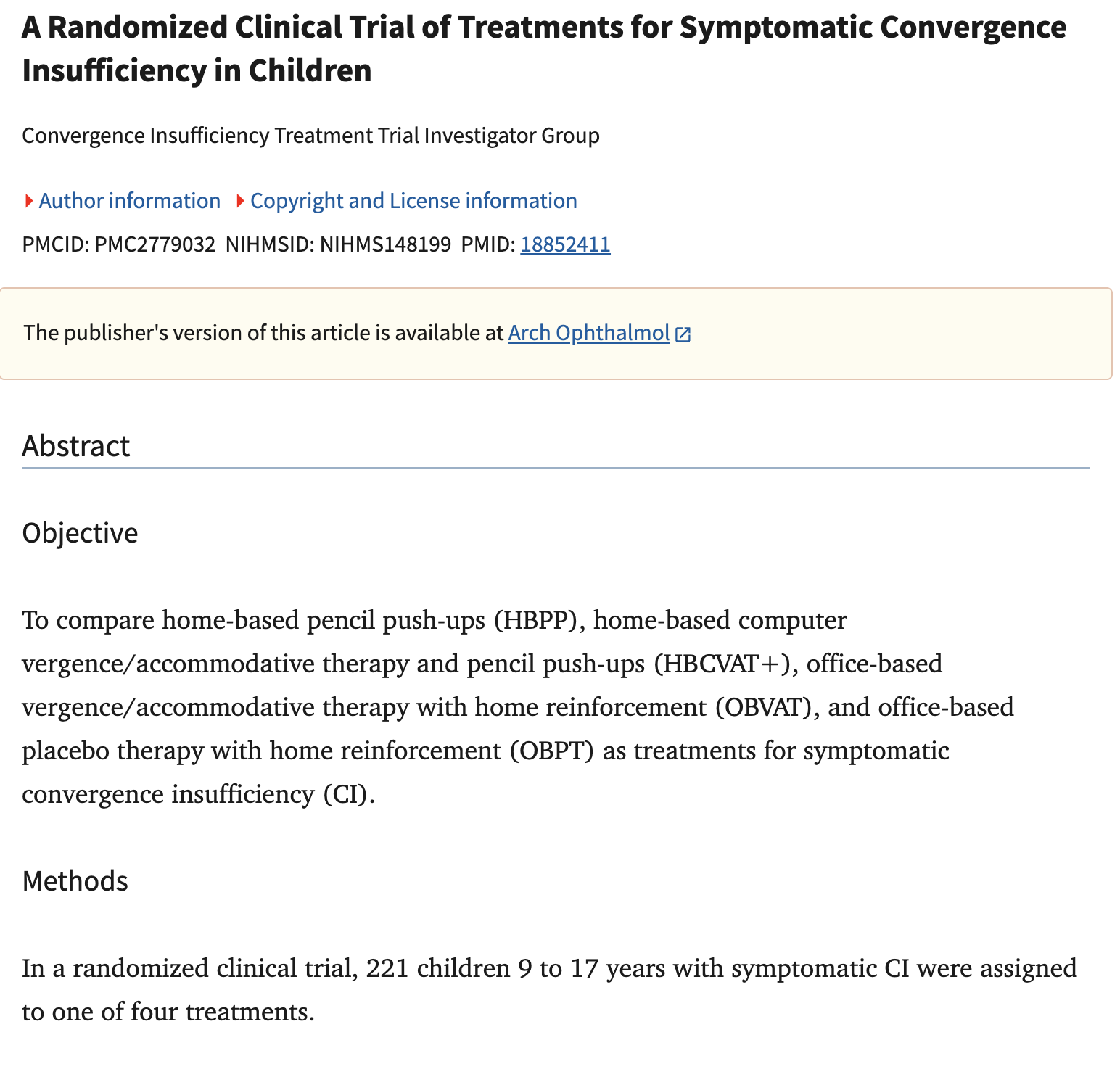If your child struggles to pay attention in school, loses their place while reading, or frequently complains of headaches, your first thought might be ADHD (Attention Deficit Hyperactivity Disorder). However, what if the issue isn’t attention at all—what if it’s their eyes?

One of the most overlooked causes of ADHD-like symptoms is a condition called convergence insufficiency (CI). This binocular vision disorder occurs when the eyes do not work together effectively to focus on near objects, such as a book or a computer screen.
Children with CI often experience:
These symptoms can easily be mistaken for signs of inattention, daydreaming, or behavioral issues, leading parents and educators to consider an ADHD diagnosis.

A significant study published in the Journal of Attention Disorders explored the relationship between CI and attention problems in children. The researchers found that:
These findings suggest that for some children, addressing a visual problem like CI can lead to noticeable improvements in focus, reading, and overall behavior.
Vision problems like convergence insufficiency can sometimes masquerade as ADHD symptoms. By recognizing and treating these visual issues, parents and educators can help children achieve better focus and success in their academic endeavors.